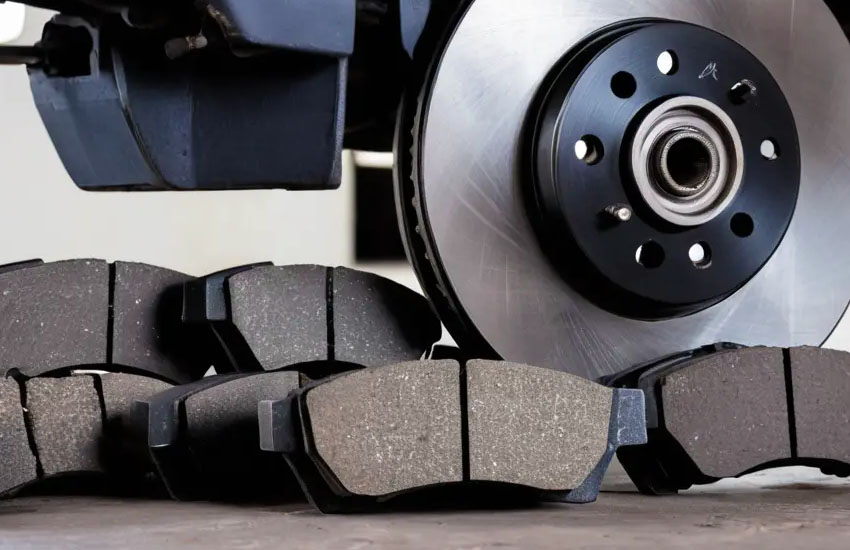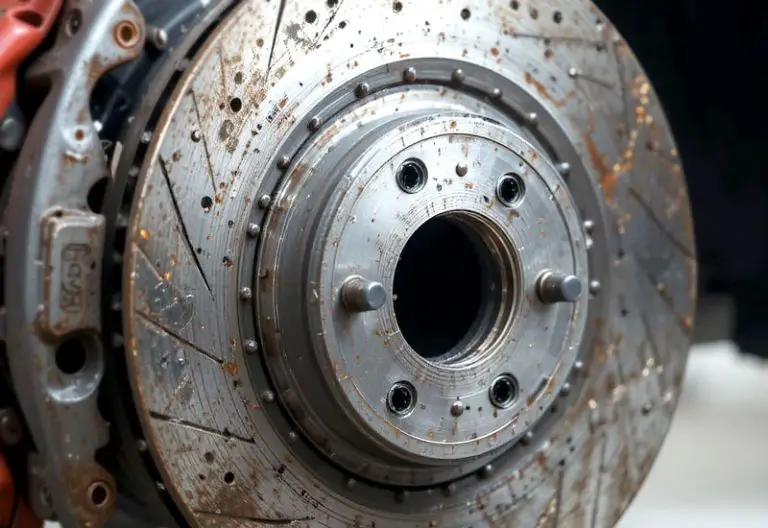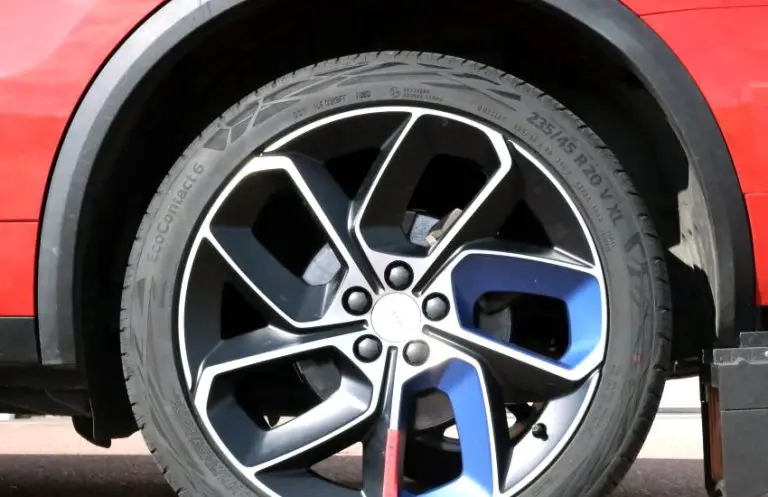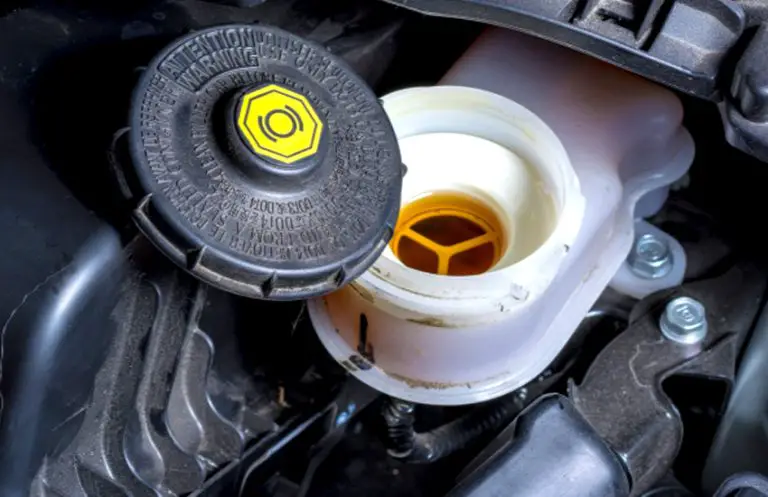Have you ever wondered if your brake pads will last forever, or if they could expire like food or batteries? While we may not think about it often, brake pads are a crucial part of keeping our cars safe and functioning properly. We all know that brake pads wear down over time due to friction, but could they have an expiration date? That’s the question we’ll be diving into today. Let’s take a closer look at whether brake pads really have a set lifespan, how to tell when they need to be replaced, and what factors affect their longevity.

The Importance of Brake Pads in Your Vehicle
Brake pads are one of the most essential components of your car’s braking system. They play a key role in ensuring your car stops safely, smoothly, and reliably. But how do brake pads work, and why do they wear out over time? Let’s break it down.
How Brake Pads Work
Brake pads are made of friction materials, usually a combination of metal, rubber, and synthetic compounds. These materials are designed to withstand high temperatures and provide consistent friction when you press down on the brake pedal. When you apply pressure to the brake pedal, the brake pads press against the brake rotors (the flat metal discs that rotate with your wheels). This creates friction, which slows down and eventually stops the rotation of the wheels, bringing your car to a halt.
Brake pads are crucial because they provide the friction needed to stop the vehicle, while the rotors are just the surface against which the pads press. Over time, the friction between the brake pads and rotors causes the pads to wear down. This is a natural part of the braking process, but how quickly the pads wear out depends on several factors.
Do Brake Pads Expire?
To answer the question directly: Brake pads don’t have an expiration date like perishable items, but they do have a limited lifespan based on usage, age, and conditions. Brake pads are made of durable materials designed to last for a long time, but like any part of your vehicle, they degrade over time. The lifespan of your brake pads can be influenced by several factors, such as your driving habits, the environment in which you drive, and the quality of the brake pads themselves.
Key Factors That Affect Brake Pad Lifespan
Driving Style: If you tend to drive aggressively, with sudden stops and fast acceleration, your brake pads will wear out more quickly. Constant heavy braking generates more heat and friction, which speeds up the wear on the brake pads. On the other hand, if you drive more conservatively, with gradual stops and gentle braking, your brake pads will likely last longer.
Terrain: If you frequently drive on steep hills or in mountainous areas, your brake pads may wear out more quickly. This is because braking on inclines requires more force to slow down the vehicle, leading to more friction and faster pad degradation. If you live in a city with frequent stop-and-go traffic, the pads may wear faster as well due to constant braking.
Quality of Brake Pads: Not all brake pads are created equal. Some are made with higher-quality materials that are designed to last longer and perform better. Higher-end brake pads may cost more, but they can save you money in the long run by lasting longer and offering better performance.
Climate and Environmental Conditions: Brake pads can also be affected by weather conditions. If you live in an area with heavy rain or snow, the pads may wear down faster because the wet conditions create more friction. Similarly, hot climates can cause the brake pads to heat up more quickly, causing them to degrade at a faster rate.
Regular Maintenance: Regular maintenance and inspections can also play a role in how long your brake pads last. If you get your brake system checked routinely by a mechanic, they can identify signs of excessive wear and replace your pads before they become a safety issue.
How Often Should Brake Pads Be Replaced?
While there is no fixed expiration date for brake pads, they do need to be replaced after they’ve worn down to a certain thickness. Most manufacturers recommend checking your brake pads every 12,000 to 15,000 miles or once a year, but this can vary based on your driving habits and conditions.
Typically, brake pads should be replaced when they have worn down to about 3 millimeters (mm) thick. New brake pads usually have a thickness of around 10 to 12 mm. Once the pads wear down to this critical thickness, they will no longer provide the necessary friction to stop your car safely, and they could start damaging the rotors.
If you notice any of the following signs, it may be time to replace your brake pads:
- Squeaking or squealing noises: Brake pads have a built-in wear indicator that emits a high-pitched squeal when the pads are getting low. If you hear this sound, it’s time to check your brake pads.
- Grinding noises: If the brake pads have worn down completely, they may start to make a grinding noise, which means the metal backing plates are scraping against the rotors.
- Vibration or pulling: If you feel a vibration or if your car pulls to one side when braking, this could be a sign that the brake pads are unevenly worn.
- Decreased braking performance: If you notice that your car takes longer to stop or feels less responsive when you press the brake pedal, it could mean that the brake pads are wearing thin.
The Life Cycle of Brake Pads
The life cycle of brake pads can be divided into different stages. At the beginning of their life, brake pads are thick and provide excellent stopping power. As you use them, they gradually wear down due to friction. The rate at which this happens depends on the factors we mentioned earlier, such as your driving style and the type of terrain you drive on.
As the pads wear down, their ability to stop the car diminishes. This is why it’s important to keep an eye on your brake pads and replace them when necessary. If you wait too long, you risk damaging other parts of your braking system, like the rotors, which can be much more expensive to replace.
Brake pads generally last between 30,000 and 70,000 miles, but this can vary depending on usage. If you drive in city traffic, for example, your pads may wear out sooner, while highway driving may allow them to last longer. Keep in mind that the cost of replacing your brake pads is much less than the cost of repairing or replacing other parts of the braking system, so it’s always better to replace them sooner rather than later.
How to Extend the Life of Your Brake Pads
While brake pads don’t have an expiration date, you can take steps to make them last longer and get the most value out of your investment. Here are some tips to help extend the life of your brake pads:
1. Drive Smoothly and Avoid Hard Braking
One of the best ways to extend the life of your brake pads is to drive more smoothly. Try to avoid sudden stops and hard braking whenever possible. This reduces the amount of heat and friction generated by the brake pads, which slows down the wear process. Instead, brake gradually and anticipate traffic, so you don’t have to slam on the brakes.
2. Keep a Safe Following Distance
Tailgating or driving too close to the car in front of you forces you to brake suddenly when they slow down. By keeping a safe following distance, you can anticipate stops more effectively and avoid unnecessary hard braking.
3. Avoid Overloading Your Car
The more weight your car carries, the harder the brakes have to work to stop the vehicle. Avoid overloading your car with heavy items or driving with a roof rack unless it’s necessary. This will reduce the stress on your brake pads and help them last longer.
4. Get Regular Brake Inspections
Routine brake inspections can help catch potential issues before they become serious problems. A mechanic can check the thickness of your brake pads and replace them if needed, ensuring that your car stays safe and that you don’t need to replace them too soon.
5. Choose High-Quality Brake Pads
Opting for high-quality brake pads when it’s time for replacement can make a big difference in how long they last. Quality brake pads tend to last longer, provide better stopping power, and reduce the chances of early wear or damage.
6. Keep Your Car in Good Condition
Regular maintenance of your car can help extend the life of the entire braking system. Make sure your rotors are in good condition and that your brake fluid is at the proper levels. Any issues with your braking system can put extra strain on the brake pads and cause them to wear out prematurely.
I hope this article has helped clear up whether brake pads have expiration dates. While they don’t expire in the traditional sense, they do have a limited lifespan and should be replaced when they show signs of wear. Keeping an eye on your brake pads and maintaining a smooth driving style can help prolong their life and ensure that your car remains safe and efficient.
Are These Questions in Your Mind?
Is it important to replace my brake pads regularly?
Yes, it is crucial to replace your brake pads regularly to ensure that your vehicle remains safe and performs at its best. Worn-out brake pads can lead to dangerous driving conditions and more expensive repairs.
Can worn-out brake pads cause damage to my rotors?
Yes, if your brake pads are worn down too much, they can damage the rotors. This is why it’s important to replace them before they become too thin.
Do I need to replace all of my brake pads at the same time?
It’s generally recommended to replace all four brake pads at the same time, even if only one set is worn down. This ensures even braking performance and prevents imbalanced wear.
Is it possible for brake pads to last 100,000 miles?
It’s rare, but it’s possible if you drive gently and maintain your brakes well. Most brake pads need replacement between 30,000 and 70,000 miles.
Can I replace my brake pads myself?
Yes, if you have the proper tools and knowledge, you can replace brake pads yourself. However, if you’re not comfortable doing it, it’s always best to consult a professional mechanic.
Is it safe to drive with worn-out brake pads?
No, driving with worn-out brake pads is dangerous. It can lead to longer stopping distances and the risk of brake failure.
Can driving on hilly terrain cause my brake pads to wear out faster?
Yes, driving on hilly or mountainous terrain puts more strain on your brakes, which can cause the brake pads to wear out faster.
Do I need to replace my brake pads every year?
Not necessarily. The lifespan of brake pads depends on your driving habits and conditions. They may last more than a year if you drive gently.
Can the type of brake pads affect their lifespan?
Yes, different types of brake pads have different lifespans. Ceramic brake pads, for example, tend to last longer than organic brake pads.
Is it okay to use aftermarket brake pads?
Aftermarket brake pads can be a good option if they meet the necessary safety and performance standards. Just make sure you choose a reliable brand for optimal performance and longevity.


